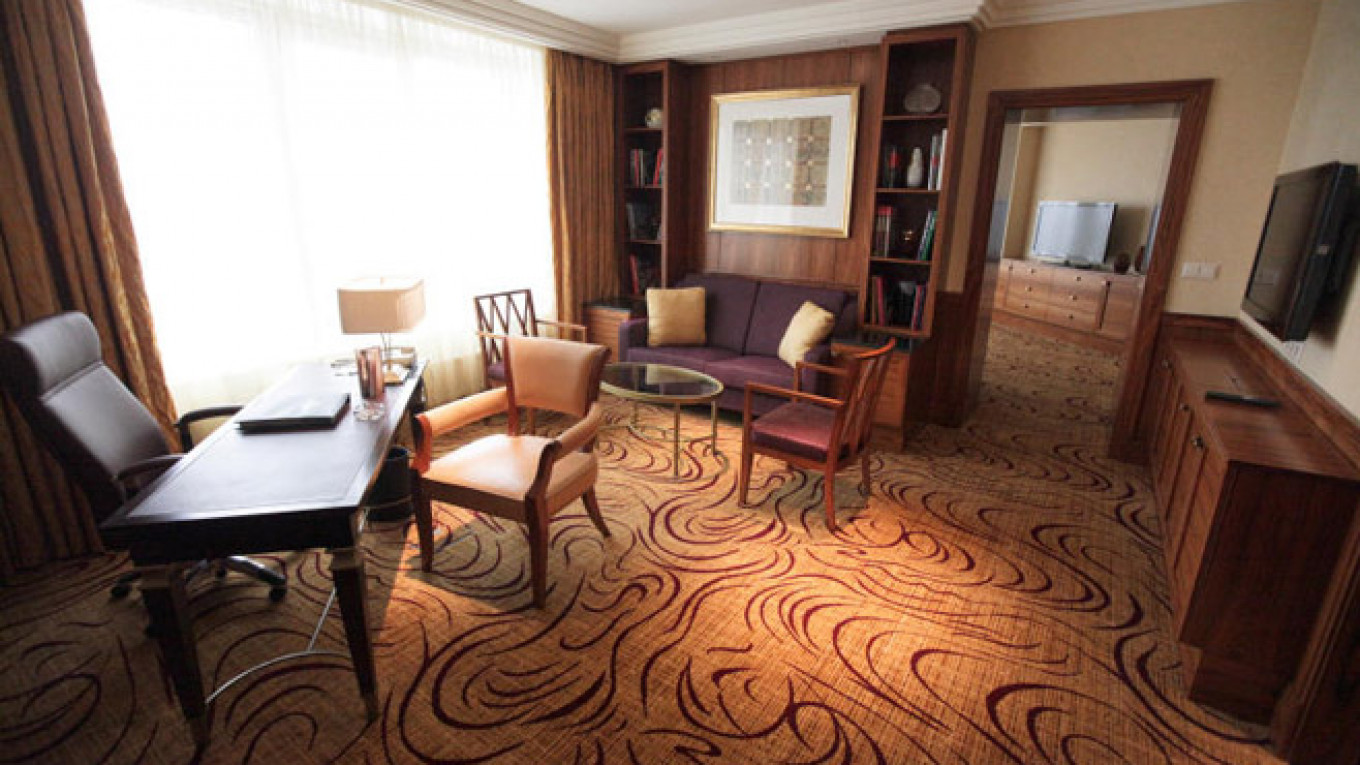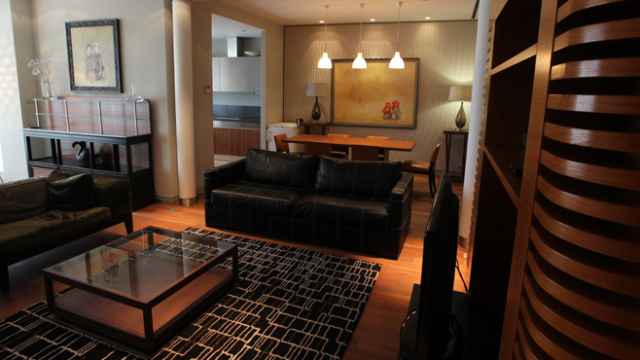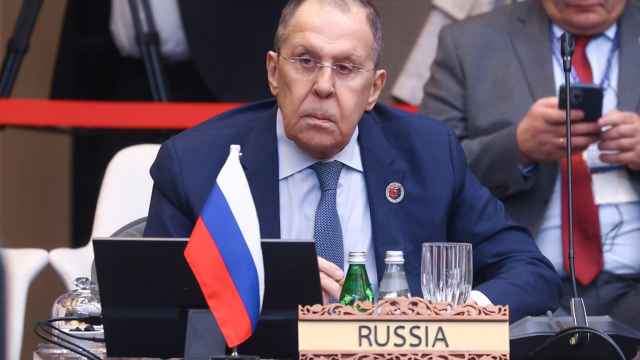Room rates at Moscow's luxury hotels will likely stagnate this year as continuing international tensions between the West and Russia sap demand, according to a report by real estate consultancy Jones Lang LaSalle (JLL).
"The market does mostly depend on politics," JLL analyst David Jenkins was quoted as saying in a press release issued late last week.
International tensions over Ukraine have grown in recent days as eastern Ukrainian separatists push to expand their territory, with some in the United States even calling for the West to start funneling militarily equipment to Kiev.
Jenkins said occupancy rates this year would be as low as 70 percent even despite the effect of the ruble's recent meltdown, which has cut the price of hotel rooms in dollar terms. The Russian currency has fallen by 50 percent to the U.S. dollar since last summer, pressured by falling oil prices and Western sanctions over Moscow's role in the Ukraine crisis.
"On the one hand the hotels in Moscow are now the cheapest they have ever been for travelers from the West. On the other hand it is far away from being a normal market situation — in fact it is the time when tourists will stay away," Jenkins said.
Moscow hotel rates will also be weighed down by an overflowing market, according to JLL.
Last year the Four Seasons, DoubleTree, Radisson and several other international brands all opened luxury hotels in Moscow. In 2015 a further 1,300 rooms are expected to become available as brands expand or make long-planned market entrances. New hotels will be hungry for customers, as the mostly imported materials and fittings used in luxury hotels are now twice as expensive thanks to the ruble's crash.
If Moscow's occupancy rates do stay below 70 percent, it will make two bad years in a row for Russia's luxury hotel industry. As the West and Russia clashed over Moscow's support for separatists in eastern Ukraine last year, luxury hotels saw occupancy rates dip to 68.1 percent, according to JLL, the lowest rate since 2009.
A recent report by news web site Fontanka.ru found that luxury hotels in St. Petersburg have dropped their prices for the Winter season by as much as 50 percent as tourism from the U.S. and Europe dries up. St. Petersburg, Russia's Northern capital and often considered the most European of Russia's cities, is a typically a tourism hotspot.
Contact the author at [email protected]
A Message from The Moscow Times:
Dear readers,
We are facing unprecedented challenges. Russia's Prosecutor General's Office has designated The Moscow Times as an "undesirable" organization, criminalizing our work and putting our staff at risk of prosecution. This follows our earlier unjust labeling as a "foreign agent."
These actions are direct attempts to silence independent journalism in Russia. The authorities claim our work "discredits the decisions of the Russian leadership." We see things differently: we strive to provide accurate, unbiased reporting on Russia.
We, the journalists of The Moscow Times, refuse to be silenced. But to continue our work, we need your help.
Your support, no matter how small, makes a world of difference. If you can, please support us monthly starting from just $2. It's quick to set up, and every contribution makes a significant impact.
By supporting The Moscow Times, you're defending open, independent journalism in the face of repression. Thank you for standing with us.
Remind me later.






